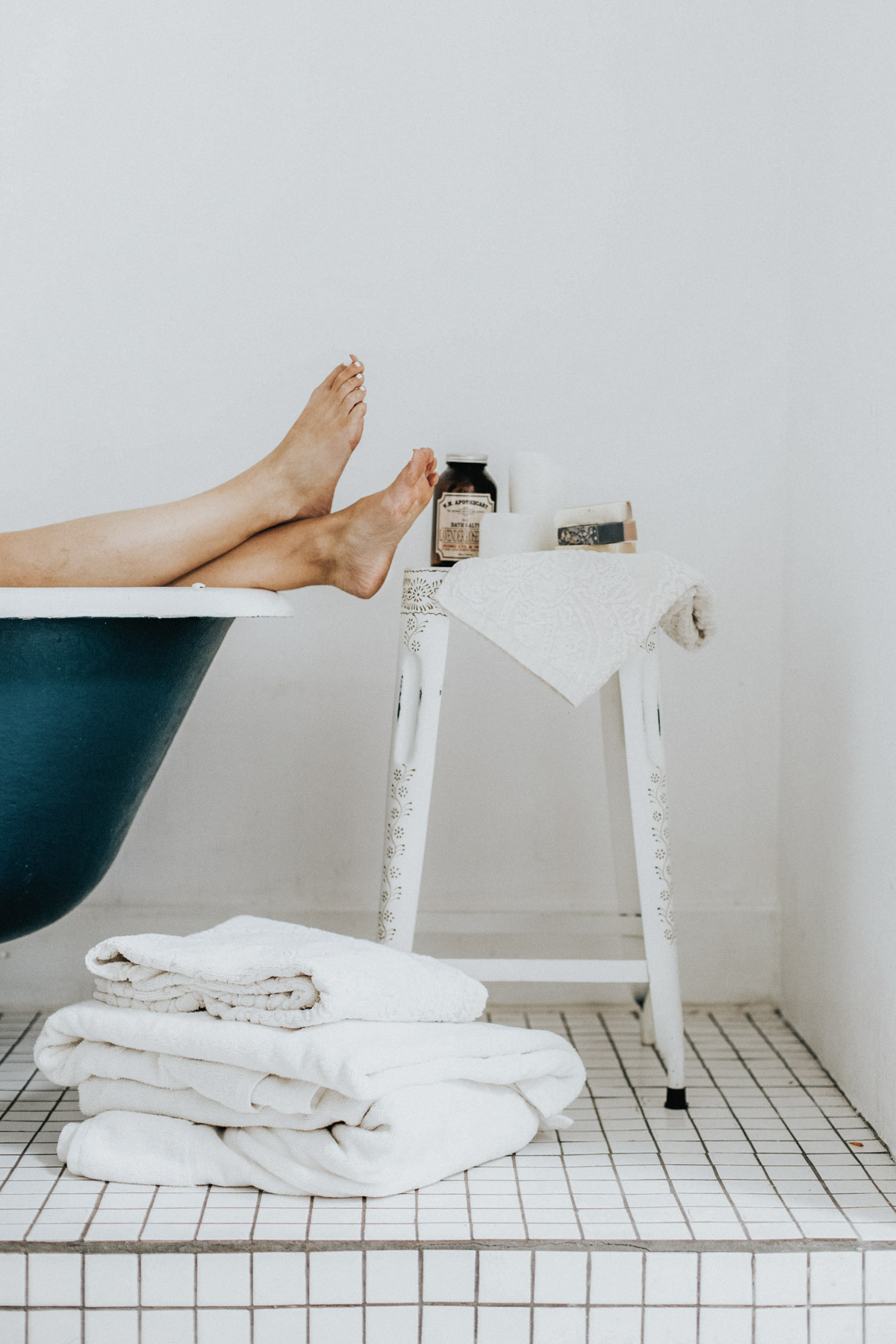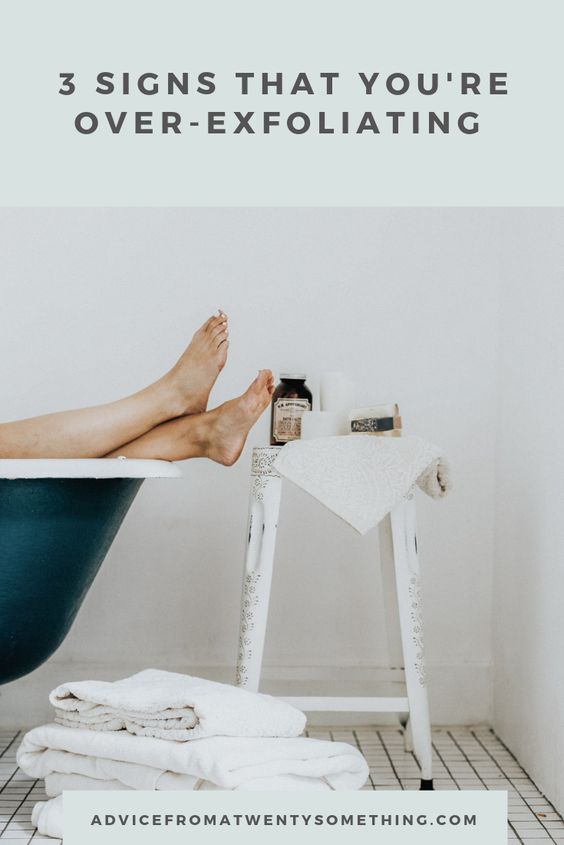Come summer, it’s tempting to push all your makeup and heavy skincare products aside, and just let your skin breathe. There’s something so casually alluring about healthy, dewy, glowing skin OK maybe it’s sweat, nobody needs to know!).
However, it can be extremely difficult to feel all sun-kissed and glowy with a buildup of dead cells, dirt and grime. So, if you want your skin to look and feel its best, exfoliating is probably an important part of your summer skincare routine.
But too much of a good thing is bad for you — and with so many great scrubs and exfoliating serums available today, it’s so easy to go overboard. When you over-exfoliate, you might be looking at long-term damage. Scrubs with large, irregular granules may make your skin feel super smooth, but they cause micro-tears, which can make your face look dull and lifeless. How often you exfoliate and the amount of pressure you put while scrubbing will have an impact too. Many of us choose a gentle scrub — and then overcompensate by vigorously rubbing the product onto our face.
So if you notice any of these signs, that could just be your skin trying to tell you that you’re over-exfoliating.
Red, irritated skin
This is the most obvious and most immediate sign of over-exfoliation. Proper exfoliation helps you get rid of the dead skin cells that build up over time, but when overdone, it can remove too much of the top layer of your skin. With this natural barrier gone, the underlying layers of skin are exposed to pollution, dirt and bacteria, causing redness and inflammation.
If your skin feels raw, red and irritated, stop exfoliating immediately and apply a cold compress to ease the burning sensation. You can also try some aloe gel to further soothe your skin. You might want to stay away from retinols, foaming cleansers and any other intense, chemical-based skincare products until your skin gets back to normal.
Familiar products suddenly start burning
Sometimes when we apply something on our skin and experience a burning sensation, we tend to blame the product. But if it happens to be a product that you’ve used in the past without any adverse effects, it is not necessary that there’s something wrong with it or you picked up a bad batch. This could be another sign that the top layer of your skin is compromised!
While it sucks having to stop using your favorite moisturizer or makeup, you might need to do just that, at least for a couple of weeks. You could try incorporating a Vitamin C serum in your skincare routine (after checking with a dermatologist, of course!) to speed up the healing process or switching to gentler, organic alternatives for a while.
Sudden surge of pimples and comedones
This happened to me and it left me super confused. I was exfoliating pretty regularly, but I was breaking out more than ever before. I thought this meant my pores were clogged, so I stepped up my exfoliation routine. That just made the problem worse, and I also started developing comedones — those annoying, tiny bumps on your skin that, unlike pimples, never seem to go away.
If you are facing something similar, stop exfoliating immediately — you will be surprised at how quickly your skin calms down. Check in with a dermatologist, too. They might prescribe a topical antibiotic to prevent pimples from getting infected. After about a month or so, when your skin barrier has been regenerated, your dermatologist might suggest you start a retinoid course to get rid of those old pimple scars and the comedones.
Your skin feels dry, no matter how much you moisturize
With the top layer of cells sloughed off, your skin finds it difficult to retain moisture. So if you notice your face getting excessively dry or patchy even though you’re constantly reapplying that expensive face cream, that could be yet another indicator of over-exfoliation.
In this case, your regular moisturizer might not cut it anymore — you may have to resort to a heavier emollient or a repair cream. You’ll know your skin has regenerated once you stop being constantly aware of the dry stretchiness.
 Using Trunk Club to Update My Spring/Summer Wardrobe
Using Trunk Club to Update My Spring/Summer Wardrobe 5 Tips For Styling a Simple Summer Dress
5 Tips For Styling a Simple Summer Dress 5 Ways to Style a Bandana
5 Ways to Style a Bandana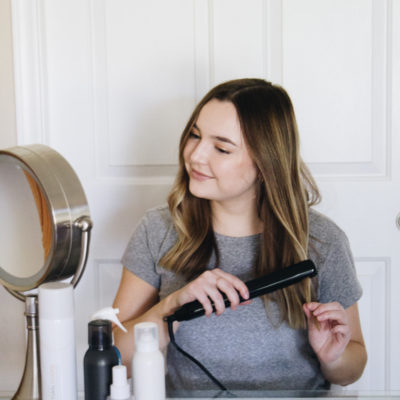 3 Different Ways to Curl Your Hair
3 Different Ways to Curl Your Hair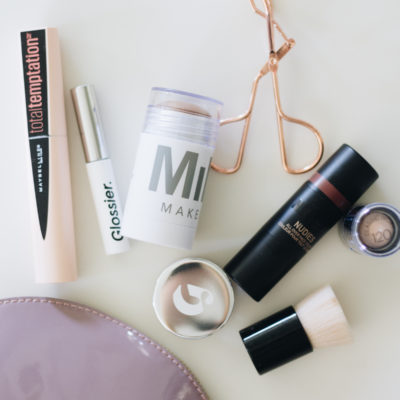 How to Master the 5-Minute Makeup Routine
How to Master the 5-Minute Makeup Routine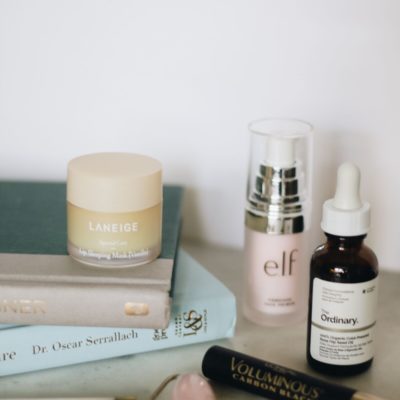 Amazon Beauty Buys Under $25
Amazon Beauty Buys Under $25 3 Ways to Make Your next Trip More Memorable
3 Ways to Make Your next Trip More Memorable Tips for Digital Spring Cleaning and Organizing
Tips for Digital Spring Cleaning and Organizing Color Trend: Marigold
Color Trend: Marigold Mental Health Update: The 3 Major Changes I Made to Get Out of Depression
Mental Health Update: The 3 Major Changes I Made to Get Out of Depression 5 Unexpected Ways to Unwind After Work
5 Unexpected Ways to Unwind After Work How to Know You’re in a Controlling Relationship
How to Know You’re in a Controlling Relationship 4 Questions I get Asked as a Professional Resume Writer
4 Questions I get Asked as a Professional Resume Writer How to Make Friends at Work
How to Make Friends at Work Getting Out of the ‘Busy’ Mindset
Getting Out of the ‘Busy’ Mindset Ask Amanda: How do I pursue the career I want without formal training?
Ask Amanda: How do I pursue the career I want without formal training? Ask Amanda: How Do I Find a Therapist?
Ask Amanda: How Do I Find a Therapist? Ask Amanda: How do I stop being jealous in my relationship?
Ask Amanda: How do I stop being jealous in my relationship?


